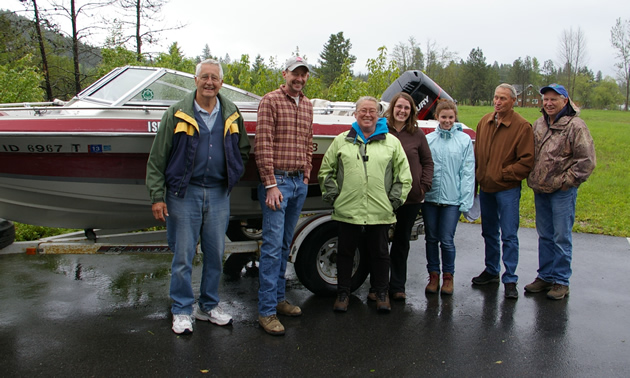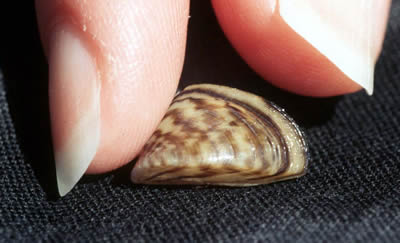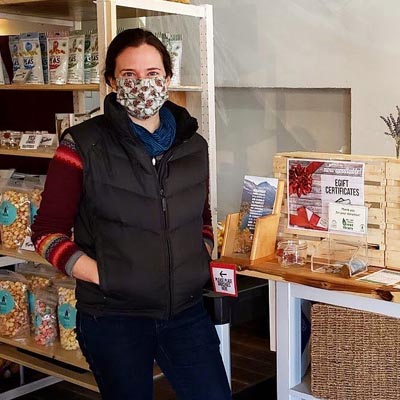Helping boaters keep lakes free of invasive species

Members of the CLSS and the BIS at their training program in Dover, Idaho. — Photo courtesy Heather Ling
B.C. is a bit behind the United States when it comes to mandatory boat inspections. Each year inspectors in Idaho alone intercept seven boats that are bringing invasive mussel species to B.C. lakes. Last year a boat with these mussels on it launched on Shuswap Lake. Testing showed that the mussels were already dead, but it emphasized the importance of better vigilance.
Members of the Christina Lake Stewardship Society (CLSS) and the Boundary Invasive Species Society (BIS) are hoping to help improve the province’s invasive species protection. They recently travelled to Idaho to learn how to inspect boats and keep our waterways free of invasive species such as zebra and quagga mussels.
If these mussels were to reach our waterways, there would be serious impacts on property values, water quality, power generation, fisheries, as well as recreation and tourism. According to the Okanagan Basin Water Board's current Impact Assessment on this species, costs could be $43 million annually for the Okanagan Basin alone. These mussels smell horrible, have razor sharp shells that can cut up feet, and can displace the entire natural food web and watershed environment.
Essentially, the message the boaters need to understand is: Clean, drain and dry. The invasive mussels are able to survive for 30 days out of water and can hide in tight spaces.
Members of the CLSS and BIS that received this training will be doing voluntary boat inspections and providing educational information throughout the summer at the Texas Creek Boat Launch. We encourage you to come out and make sure your boat is free of non-native zebra and quagga mussels and other invasive aquatic species, including Eurasian watermilfoil and curlyleaf pondweed, two invasive species that the lake already has that we do not want to spread to other waterbodies. Come see us at the Texas Creek Boat Launch or visit us at the Christina Lake Welcome Centre and get the information you need to help keep our lake clean!

Small species, such as this zebra mussel, can cause very big problems. Photo courtesy National Park Service in Montana.






Comments